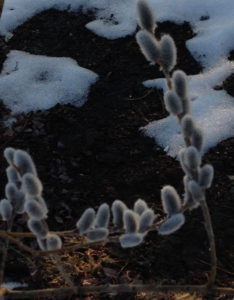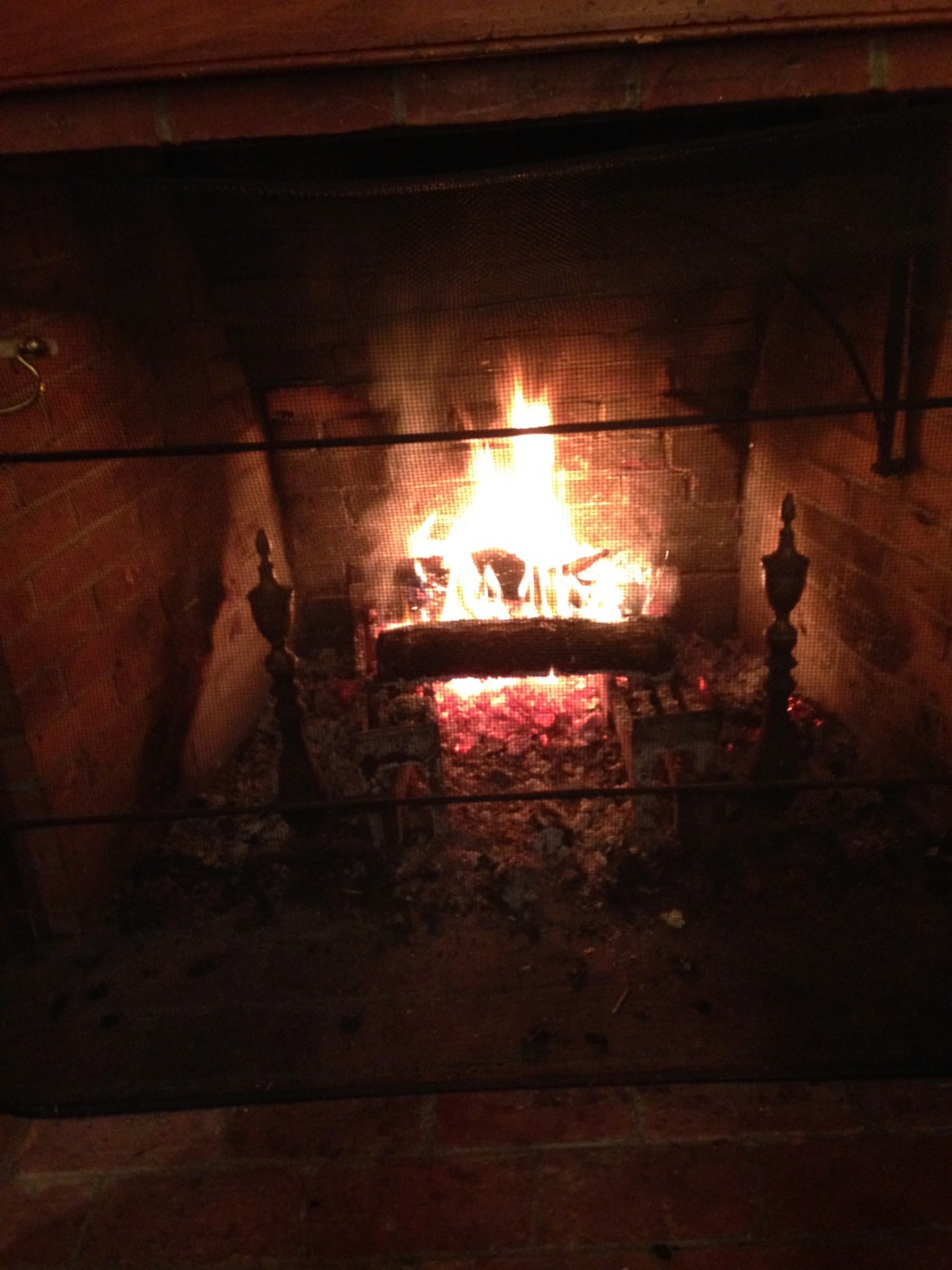You Don’t Have to Be a Druid to Claim Your Fire
Today marks one of my favorite holy days of the year: Candlemas. But well before it was claimed by Christians, the Celts knew it as Imbolc — the halfway point between the winter solstice and the spring equinox.
Imbolc means “in the body of the Mother.” It is a fertility rite, complete with burning lamps and fires to honor the stirring of seeds in the earth, and Saint Brighid, goddess of hearth and home.
The Christian Candlemas observes the 40th day post-partum of Mary, after which she is ritually purified, and her offspring, Jesus, is presented at the Temple to be blessed. Traditionally on this day Catholics bring their candles (their “fire” sticks) to church to be blessed for the year.
By all counts, then, today is a feast of restoration and renewal. You don’t have to be a Druid or even a Christian to feel the deep yen for restoration after a cold, dark season.
What in your life needs renewal, restoring, healing? Take a moment to ponder this.
Have you tried and failed to get beyond some rupture, loss, betrayal, or hurt? Are you stuck in a limbo of frustration, pain, or getting by on sheer endurance?

We all have these times. And the ice-bound world of winter can be a harsh correlative to our inner lives. It is for this reason that peoples past gathered around fires and told stories, shared their wisdom to lend hope to those undergoing trials.
In this spirit I want to share a story of my own on this Candlemas, hoping it can serve as a warming hearth for those ice-bound places in your own life.
*************************************************************************************************************************************************
Twenty-seven years ago, during the season of Epiphany, my beloved younger brother died a horrible and needless death. The details are less important now than the path that his death set me on.
I was a new mother, with a demanding career, and I was sent into a tailspin.
Where was God? How could I have done more to prevent this death? Where would I, and my other siblings, possibly put the pain that his absence unleashed in our shared life?
I learned that trauma is a force that saps strength, attention, and will, on a daily — hourly — basis. Reminders and memories are everywhere. A sense of helplessness can descend into panic, insomnia, and yield to a kind of walking death for months.
I learned the wisest saying I know: Be kind to all you meet, for everyone is bearing a secret burden.
I learned how consuming it is to move beyond grief.
Then, in time, I learned that one doesn’t “move beyond grief” so much as one allows grief to do the “moving” — the rearranging of one’s priorities, values, and life direction.
As I clung for dear life, and crawled from that terrible Epiphany to Candlemas, the hearth wisdom of ancient women found me.
This is what I learned.
- Physical labor and activity are essential to healing:
Each day I had a hearth to maintain, meals to prepares, bread to put on the table, clothes to mend and organize. I needed my walks as never before, my knitting needles, a small child to curl up against me. As spring advanced, I planted a garden which included my brother’s favorite flowers.
- Listening friends:
My friend Linda, who had lost her only son to a ski accident when he was a teen, long before I knew her, understood better than anyone the importance of listening and presence. She called several times a week just to listen, sometimes for hours. She knew that telling the story over and over again would eventually lead out of obsession to new, tentative meanings, and in time, to forgiveness. She was right.
3. The wisdom of our Inner Witness:
I had been an intermittent person of prayer — more a reader of theology than a practitioner. This changed radically. I began to pray each morning, and to listen more deeply to my intuition, my dreams, the still small voice within me. I learned, as I have many times since in the work of Spiritual Direction that emerged as a call during this time, that the seeds of healing are closer at hand that we know. They are within us. Good therapists and spiritual directors understand that their job is to help nurture the unique dreams and desires — the inner seeds — that reach for the light and the wholeness of summer.
4. Acceptance, honesty, and humor:
A few years after my brother’s death, I was able to write this, in a book that chronicles my journey, A Sabbath Life: One Woman’s Search for Wholeness.
“I see the price we pay for accepting life in the fast lane. It is an essential isolation, which eventually leads to a loss of the center…. Without this center, we aren’t the people we are meant to be, [we are] just a bundle of reactions and defenses and biases and opinions. We have no memory and no true, guiding silence….I would say [now] that in a period of history shot through with the language of power, of assertion, of doing, I and most of the women I know have been sufficiently distracted by the thing we call ‘success’ to have cut ourselves off from the quiet search among the images of our own silence for the worlds, the life, that might grow from them. I have never seen this so clearly as I do today, as a choice that we make about our way of being in the world.”
Life, if it is to BE life (and not just walking in the shadows) will call to us back into being.
We build fires together. We sing and share, weep and console. We laugh and hold one another.
In time we learn to quiet the laments, and to listen.
Then, our candles can be lit.





Rich Staples
February 2, 2023at8:06 am❤️
Kathleen Hirsch
February 2, 2023at5:36 pmThanks, Rich. Pithy but says a lot. I appreciate it.